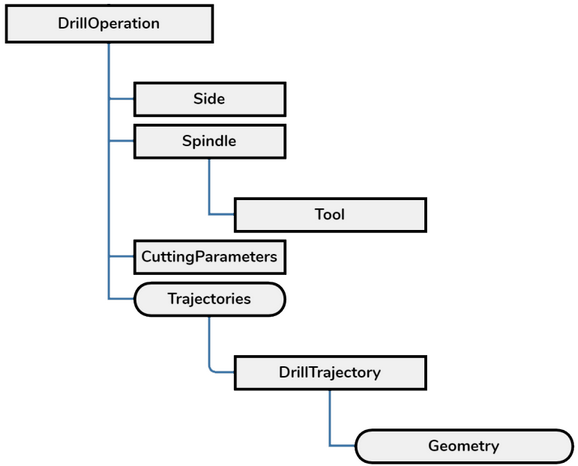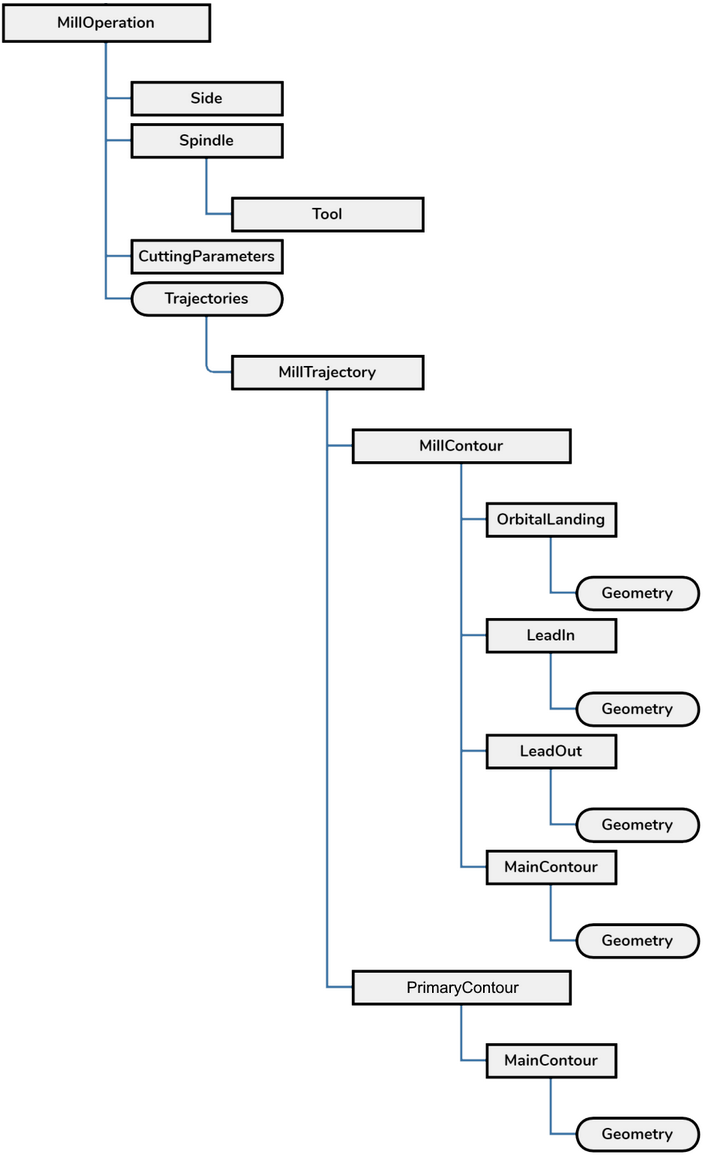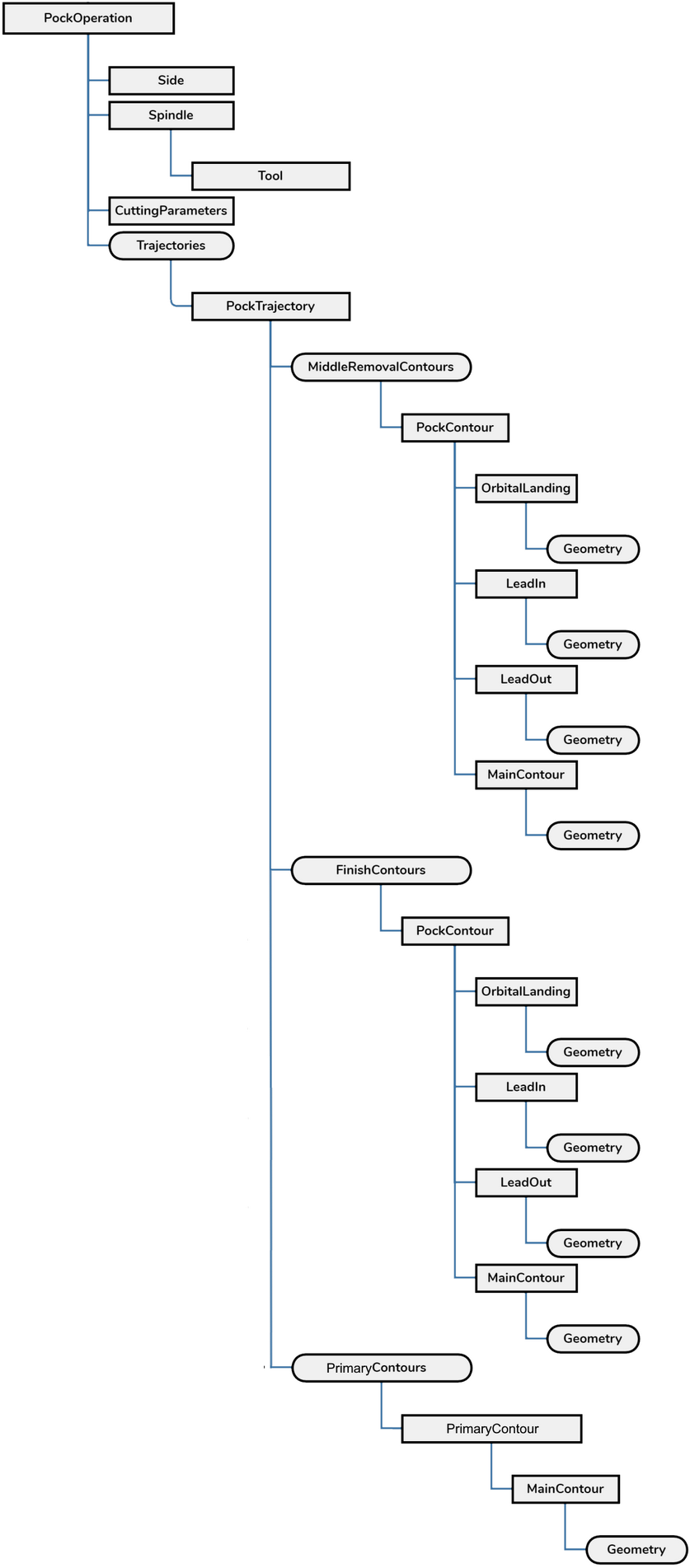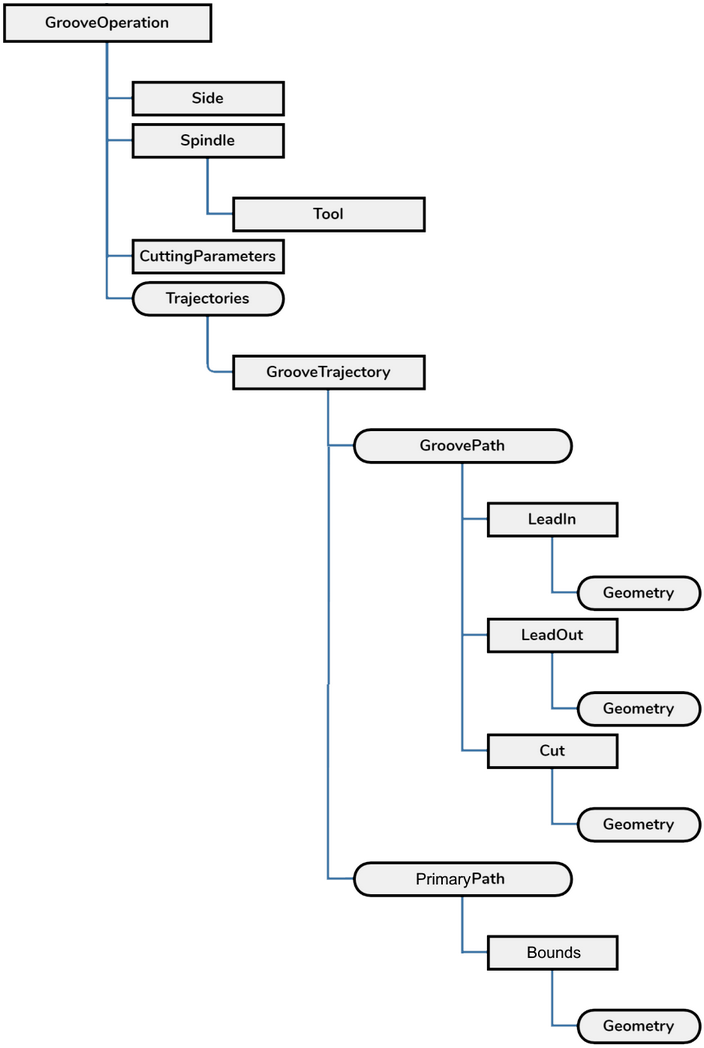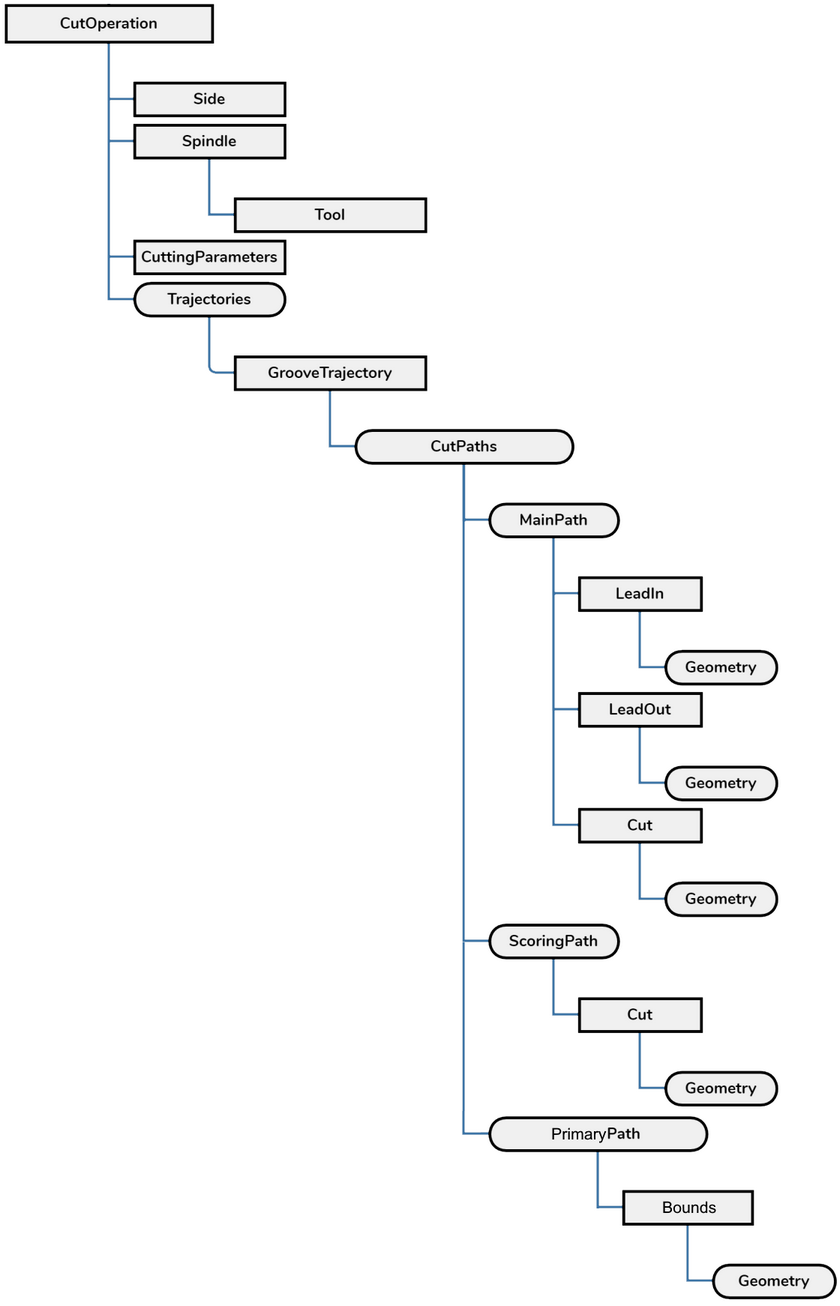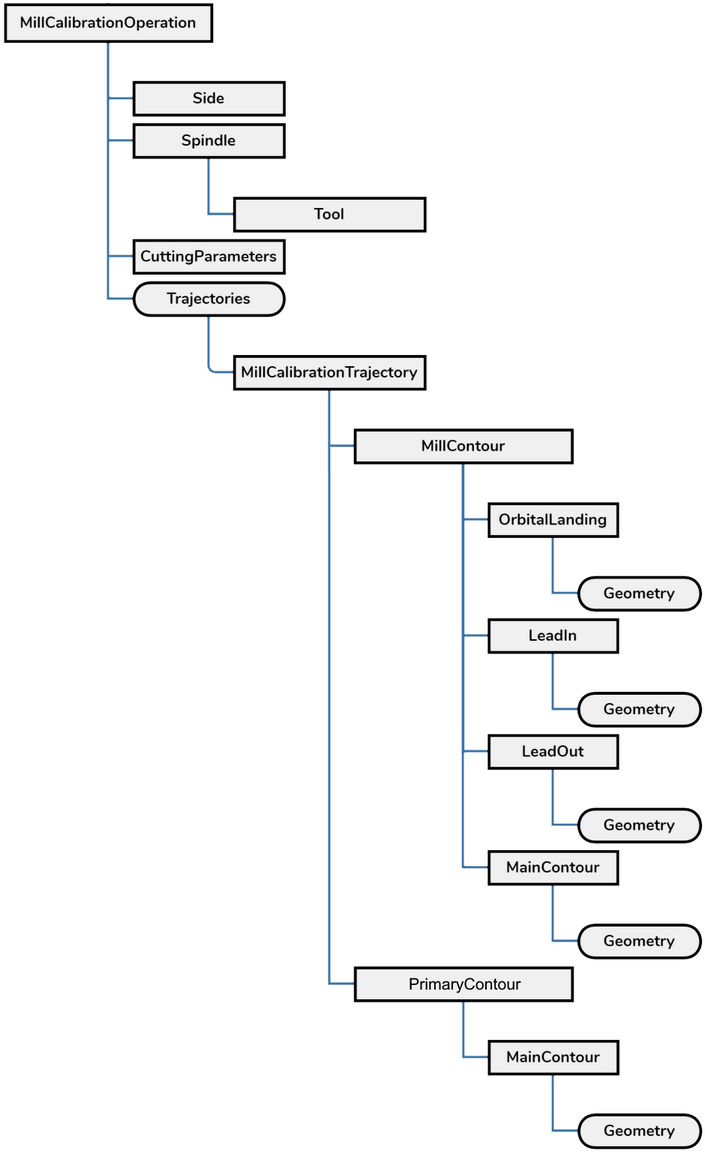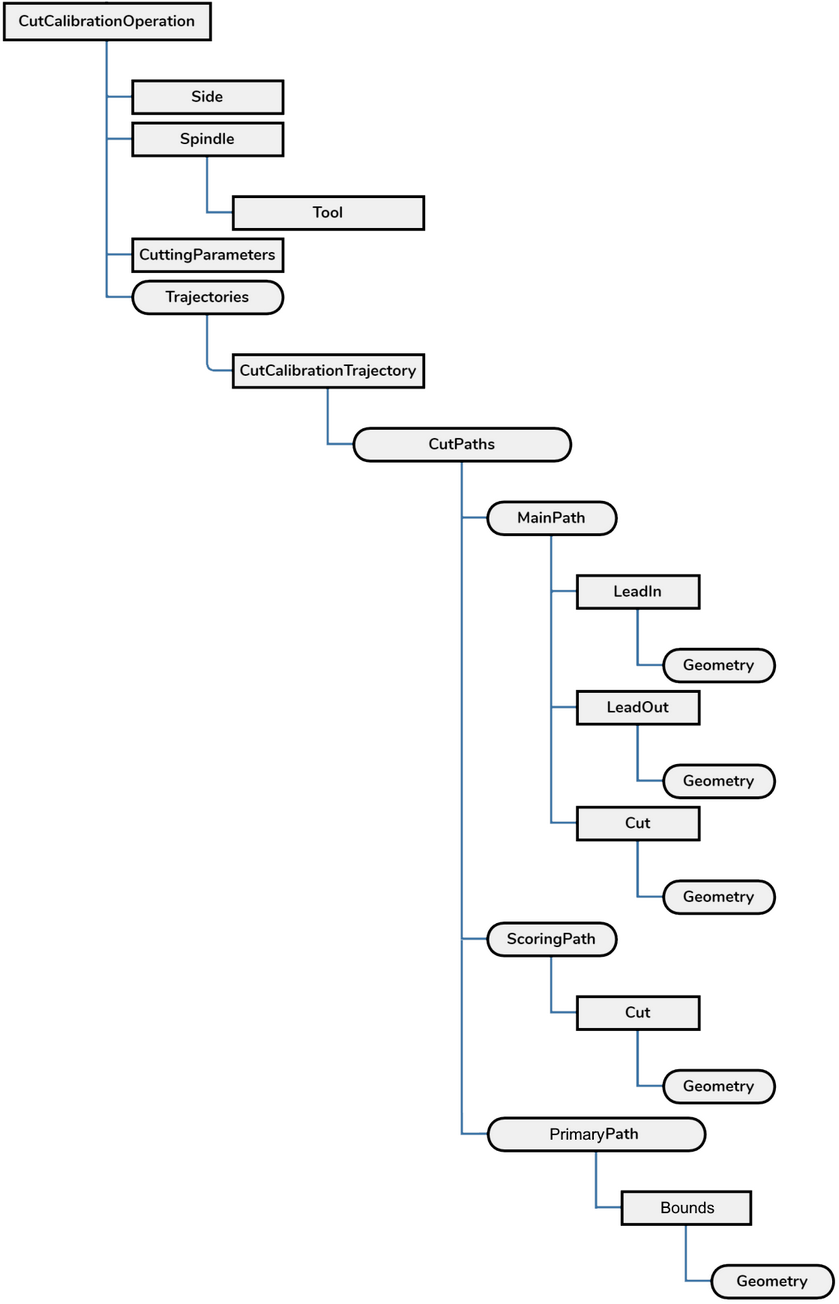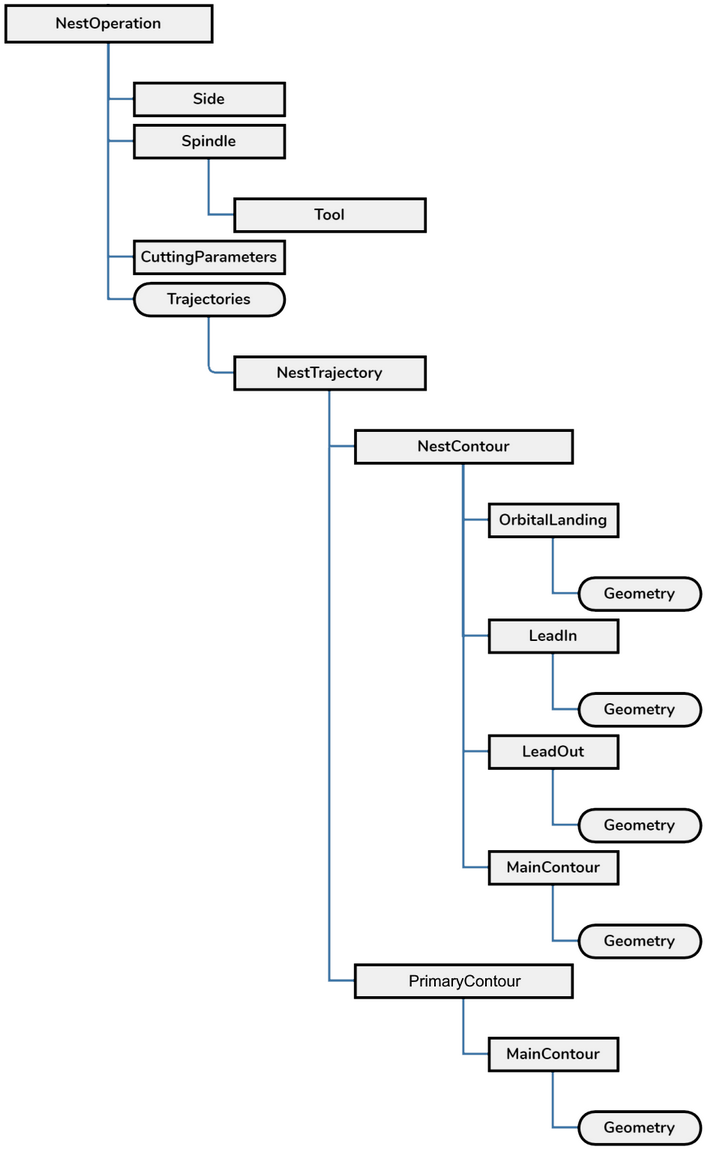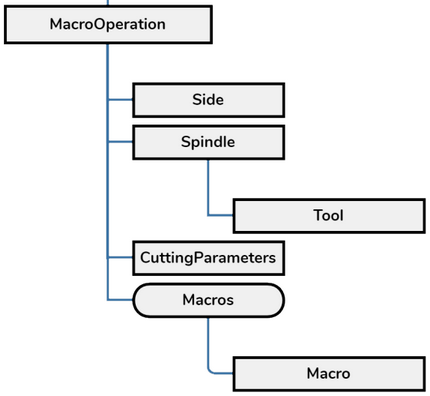The Post-Processor API provides the user with a set of objects and collections of objects that allow the user to access, interpret and output the CAM technology data in the Post-Processor they are creating to a text file, which will be the final CNC processing program.
In Woodwork for Inventor, the CAM technology is displayed in the side browser of the CAM module. However, it is a slightly different representation of the CAM technology than can be manipulated inside the Post-Processor. The whole CAM technology is represented by the following model of the API objects in the Woodwork for Inventor Post-Processors:
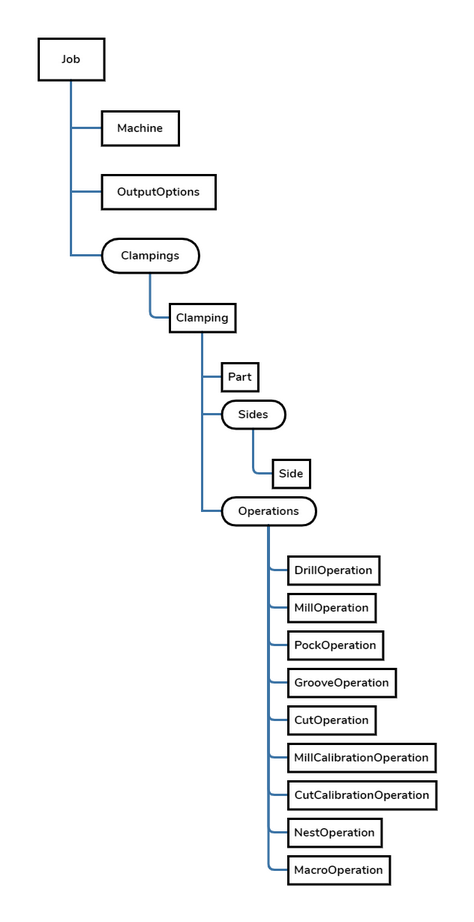
Each operation has its own object structure that serves the data of the operation.
|
|
|
|
|
|
|
|
|
The Post-Processor receives a structure of such objects, bound together and filled with data, which represent the given technology. The user has to go through this structure (by means of interleaved program loops), access the relevant data, interpret it and output it as the final code of the CNC program. For a more precise description of the object methods and properties, please refer to the help file provided on
C:\Users\Public\Documents\Woodwork for Inventor\<Inventor version>\<Woodwork version>\SDK\PostProcessors\Woodwork for Inventor Postprocessor API Help.chm
A part can have multiple jobs. This means that a part may have alternative technologies developed for several different machines, or it may have part of the processing carried out in one machine and the other part in another machine. In one way or another, multiple jobs refer to processing of a part on different machines. Since the Post-Processor is designed for a single machine, the CAM technology will always have only one job from the Post-Processor point of view.
